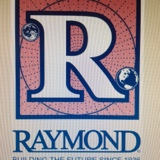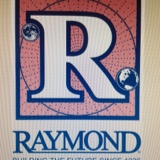Information
-
Project/Job#
-
Client / Site
-
Conducted on
-
Prepared by
-
Location
-
Personnel
1. Working at Heights
-
1.1. Fall risks (6 ft. or more, including voids, pits, and trenches)
-
1.2. Lack of edge protection?
-
1.3. Unsafe or incomplete edge protection?
2. Equipment (chop saws, drills, mixers, pumps, etc.)
-
2.1. Unsafe or damaged equipment? (including missing or damaged guards)
-
2.2. Incorrect equipment for job? (e.g. grinding discs for cutting)
-
2.3. Unsafe or incompatible attachments used with equipment?
-
2.4. Unlicensed operators?
-
2.5. Lack of safe work instructions?
-
2.6. Lack of training in safe operation, clean-up and maintenance?
-
2.7. Lack of LOTO procedures for cleaning, servicing and maintenance?
-
2.8. Lack of inspection regime?
3. Scaffolds
-
3.1. Uncertified persons erecting scaffold above 6 ft.?
-
3.2. Unsafe or incomplete scaffold?
-
3.3. Lack of inspection protocol for scaffold?
-
3.4. Incompatible scaffold components? Unlabelled or do not meet SAIA standards?
-
3.5. Safe Work Load (SWL) exceeded? (tools, stored materials, number of persons)
4. Lifting Equipment (scissor, boom, fork)
-
4.1. Unsafe act
-
4.2. Lack of daily inspection protocol?
-
4.3. Unlicensed operators?
-
4.4. Loads lifted over persons, close proximity to obstacles incl. overhead power lines?
-
4.5. Unsafe or damaged lifting equipment, including ropes, slings, chains, hooks?
-
4.6. Lifting equipment unlabelled, does not meet Manufacturers recommended standards?
-
4.7. Lack of LOTO procedures for cleaning, servicing and maintenance?
-
4.8. Lack of SWL information displayed?
-
4.9. SWL of any lifting equipment exceeded?
-
4.10. Lack of maintenance?
5. Fall Protection
-
5.1. Unsafe or damaged harness or equipment?
-
5.2. Incompatible hooks/equipment?
-
5.3. Unlabelled or does not meet Manufacturers standards?
-
5.4. Unsafe or uncertified anchor points?
-
5.5. Lack of inspection protocol for equipment?
-
5.6. Inadequate training for PFAS?
6. Ladders
-
6.1. Unsafe or damaged ladders?
-
6.2. Unsafe positioning of ladders?
-
6.3. Ladder not properly secured?
7. Manual Tasks (hazardous)
-
7.1. Lack of identification hazardous manual tasks?
-
7.2. Lack of assessment of hazardous manual tasks?
-
7.3. Inadequate risk controls? (examples: no job rotation, lighter loads, trolleys, lifting equipment, etc)
-
7.4. Lack of training in risk controls and safe lifting/ team lifting techniques?
8. Hazardous Chemical (including fuel and oil)
-
8.1. Unsafe storage location? (e.g. flammables near ignition sources, spills could enter stormwater drains, etc)
-
8.2. Incompatible chemicals stored near each other?
-
8.3. Inadequate spill containment equipment?
-
8.4. Safety Data Sheets not accessible on site?
-
8.5. Lack of emergency procedures for injury/spills/fire etc?
-
8.6. Excessive quantities stored on site or in vehicles?
-
8.7. Insufficient ventilation?
-
8.8. Insufficient, or incorrect, PPE?
-
8.9. Unsuitable/missing/damaged Fire protection (fire extinguisher)
9. Emergency Response
-
9.1. Lack of, or no emergency plans for site?
-
9.2. Emergency procedures not displayed at site?
-
9.3. Lack of training and rehearsal of emergency plans?
-
9.4. Lack of, or inadequate first aid kits aid equipment for site?
-
9.5. Insufficient access to formally trained First Aiders for all shifts?
-
9.6. Unsuitable or inadequate communication equipment?
10. Traffic Management
-
10.1. Lack of, or inadequate, Traffic Management Plan (TMP) in place?
-
10.2. Lack of training in TMP for all persons on site? <br>(contractors and visitors)
-
10.3. Inadequate controls for TMP? (physical barriers, bollards, speed limits, flashing lights, spotters, etc)
11. Personal Protective Equipment (PPE)
-
11.1. Lack of, or inadequate PPE (including sun protection)
-
11.2. Lack of system to issue, inspect, replace and monitor PPE?
-
11.3. Lack of training in safe use, clean-up and inspection of PPE?
-
11.4. Respiratory protection/equipment?
12. Work Environment
-
12.1. Inadequate housekeeping?
-
12.2. Potentially Hazardous condition?
-
12.3. Lack of/or inadequate amenities? (toilets, wash areas, lunch rooms, etc)
-
12.4. Insufficient lighting?
-
12.5. Danger area/unsafe act/horseplay?
-
12.6. Lack of, or inadequate noise/ vibration control?
-
12.7. Striking against-struck by/ergonomics?
13. Electrical Hazards
-
13.1. Unsafe electrical leads? (damaged, out of test date or untested)
-
13.2. Lack of GFCI protection?
-
13.3. Contact with overhead electrical lines?
-
13.4. Overloading outlets?
-
13.5. Electrical equipment near water?
-
13.6. Electrical equipment near flammables?
14. Environmental Hazards
-
14.1. Lack of/or inadequate Environmental Management plan (EMP)?
-
14.2. SWPPP
-
14.3. PACM/PLCM-ACM/LCM (Asbestos/Lead)
-
14.4. Lack of/or inadequate, dust suppression system?
15. Administrative Procedures
-
15.1. Lack of/or inadequate Site Safety Plan?
-
15.2. Lack of, or inadequate system to review SWP/IIPPas needed?
-
15.3. Lack of, or inadequate, routine inspections, monitoring, audits?
-
15.4. Lack of/or inadequate training, licenses, skills, experience?
-
15.5. Lack of/or inadequate Job Hazard Analysis (JHA) for high- risk work?
-
15.6. OSHA posters/permits/workers comp postings?
16. Fire Protection
-
16.1. Fire extinguisher within proper distance of spark emitting/hot work operation?
-
16.2. Fire extinguisher to code and inspected?
-
16.3. Combustible gasses/flammable stored properly?
17. Confined Space
-
17.1. Confined space personnel trained and certified?
-
17.2. All permitted confined space controls in place?
18. Excavations
-
18.1. Covers/shoring/access/sloping/etc.?
19. Misc.
-
19.1. Unsafe?
-
19.2. Safe?
Comments & Corrective Actions
-
Enter any corrective actions that will be undertaken
Sign Off
-
On site representative
-
Auditor's signature KIRK WILLIAMSON, The RAYMOND Group Director of Safety







